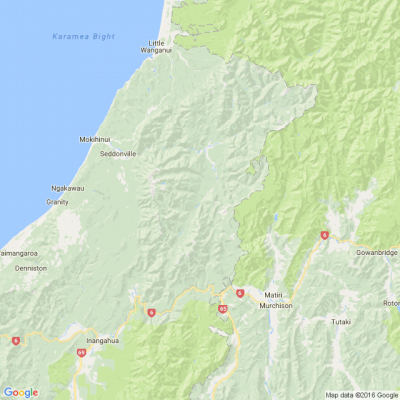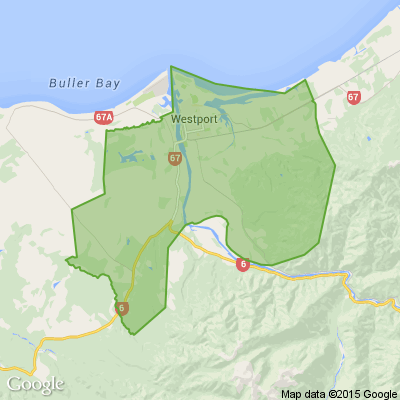Speed limit changes cost Coast ratepayers half a million
By local democracy reporter Lois Williams:
West Coast councils spent close to half a million dollars working on speed limit changes that the coalition Government has now binned.
The West Coast Regional Transport Committee was forced to withdraw its draft regional speed management plan on Thursday, after Transport Minister Simeon Brown signed a new Speed Limit Rule that overrides it.
It also strips councils of their ability to submit their own safety plans in future, staff have reported.
The four councils on the West Coast had written a single regional plan to improve efficiency and coordination, including some small, fixed-speed zones around schools.
It also proposed to lower speeds limits on several roads causing concern for locals.
But the minister’s new rule allows only variable limits outside schools and requires councils to reverse any speed limits that were changed.
The draft West Coast transport plan was publicly consulted on over four weeks in March and April, and cost the regional council $78,000 to develop – not including staff time.
But Transport Committee chairperson Peter Ewen says there were bigger costs for the three district councils, in completing their sections of the plan.
“Buller spent $172,000 and Westland would have been close to that ; when you add them all up, you’d be pushing $500,000, and it’s gone."
There was no way the government would be reimbursing councils for the wasted time and money, Ewen said.
The speed limit changes made by the previous government had been “a little rushed”, he said.
“But if there’s another change of government in a few years, are we going to be spending more money we can’t afford – all for nothing, because the incoming government throws this out?”
It would be nice if the major parties could agree on policy like speed limits, Ewen said.
“We live in hope, but meanwhile the ratepayers have to grin and bear it.”
Under the latest changes, reduced speed limits of 30kph will apply to urban schools during high-risk pick-up and drop-off times, and there will be a similar limit of 60kph or less on roads that pass rural schools.
The speed limit on roads of national significance will rise to 120kph.
The minister has said it made no sense to slow down a tradesperson passing a school at 5am on the way to work, and the changes would improve traffic flows.
A staff report to this week’s Regional Transport Committee meeting said district councils could still submit individual speed management plans.
But they would have to do a separate cost-benefit analysis for each road being considered for a speed change, followed by a six-week community consultation.
The government had now removed the NZTA subsidies that previously applied to that work, policy manager Max Dickens reported.
And there was still a significant chance that a council’s proposed change would be rejected by the director of land transport if the proposed limit did not abide by the government’s new speed limit classifications, he said.
The new national rule meant that all the work on the draft West Coast speed management plan was now a sunk cost.
Safety outcomes were likely to become worse and the largest risk was that councils would lose the ability to control the roads they had authority over, Dickens said.
The transport minister recently told Local Democracy Reporting that Kiwis had rejected a blanket and
untargeted approach to reducing speed limits.
Consultation highlighted “broad support” for the Government’s new rule with 65% of submitters supporting the reversal of blanket speed limit reductions, Brown said.
The new speed rules apply from July 1, next year.
Poll: Should the government levy industries that contribute to financial hardship?
As reported in the Post, there’s a $30 million funding gap in financial mentoring. This has led to services closing and mentors stepping in unpaid just to keep helping people in need 🪙💰🪙
One proposed solution? Small levies on industries that profit from financial hardship — like banks, casinos, and similar companies.
So we want to hear what you think:
Should the government ask these industries to contribute?

-
59.9% Yes, supporting people is important!
-
25.7% No, individuals should take responsibility
-
14.4% ... It is complicated
A Neighbourly Riddle! Don’t Overthink It… Or Do?😜
Do you think you know the answer? Simply 'Like' this post if you know the answer and the big reveal will be posted in the comments at 2pm on the day!
If you multiply this number by any other number, the answer will always be the same. What number is this?

Have you got New Zealand's best shed? Show us and win!
Once again, Resene and NZ Gardener are on the hunt for New Zealand’s best shed! Send in the photos and the stories behind your man caves, she sheds, clever upcycled spaces, potty potting sheds and colourful chicken coops. The Resene Shed of the Year 2026 winner receives $1000 Resene ColorShop voucher, a $908 large Vegepod Starter Pack and a one-year subscription to NZ Gardener. To enter, tell us in writing (no more than 500 words) why your garden shed is New Zealand’s best, and send up to five high-quality photos by email to mailbox@nzgardener.co.nz. Entries close February 23, 2026.







 Loading…
Loading…





